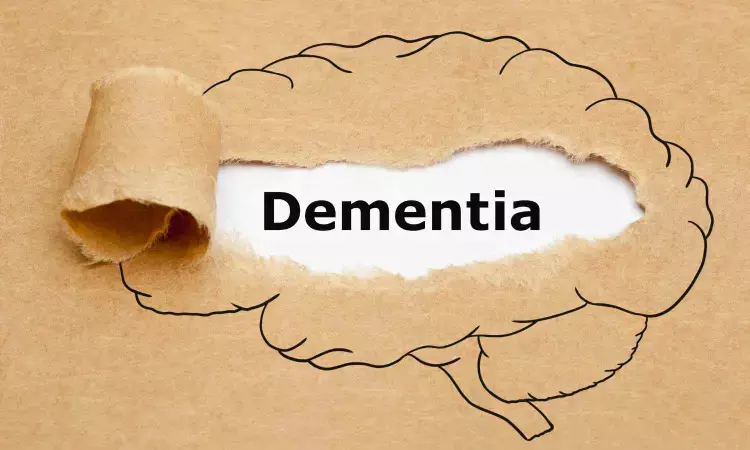- Home
- Medical news & Guidelines
- Anesthesiology
- Cardiology and CTVS
- Critical Care
- Dentistry
- Dermatology
- Diabetes and Endocrinology
- ENT
- Gastroenterology
- Medicine
- Nephrology
- Neurology
- Obstretics-Gynaecology
- Oncology
- Ophthalmology
- Orthopaedics
- Pediatrics-Neonatology
- Psychiatry
- Pulmonology
- Radiology
- Surgery
- Urology
- Laboratory Medicine
- Diet
- Nursing
- Paramedical
- Physiotherapy
- Health news
- Fact Check
- Bone Health Fact Check
- Brain Health Fact Check
- Cancer Related Fact Check
- Child Care Fact Check
- Dental and oral health fact check
- Diabetes and metabolic health fact check
- Diet and Nutrition Fact Check
- Eye and ENT Care Fact Check
- Fitness fact check
- Gut health fact check
- Heart health fact check
- Kidney health fact check
- Medical education fact check
- Men's health fact check
- Respiratory fact check
- Skin and hair care fact check
- Vaccine and Immunization fact check
- Women's health fact check
- AYUSH
- State News
- Andaman and Nicobar Islands
- Andhra Pradesh
- Arunachal Pradesh
- Assam
- Bihar
- Chandigarh
- Chattisgarh
- Dadra and Nagar Haveli
- Daman and Diu
- Delhi
- Goa
- Gujarat
- Haryana
- Himachal Pradesh
- Jammu & Kashmir
- Jharkhand
- Karnataka
- Kerala
- Ladakh
- Lakshadweep
- Madhya Pradesh
- Maharashtra
- Manipur
- Meghalaya
- Mizoram
- Nagaland
- Odisha
- Puducherry
- Punjab
- Rajasthan
- Sikkim
- Tamil Nadu
- Telangana
- Tripura
- Uttar Pradesh
- Uttrakhand
- West Bengal
- Medical Education
- Industry
Alzheimer's drug may slow down cognitive decline in dementia with Lewy bodies: Study

Dementia with Lewy bodies is a type of dementia that is similar to both Alzheimer's disease and Parkinson's disease but studies on long-term treatments are lacking. A new study from Karolinska Institutet in Sweden, published in Alzheimer’s & Dementia: The Journal of the Alzheimer's Association, highlights the potential cognitive benefits of cholinesterase inhibitor treatment.
Lewy body disease, which includes dementia with Lewy bodies (DLB) and Parkinson’s disease with and without dementia, is the second most common neurodegenerative disorder, following Alzheimer’s disease. DLB accounts for approximately 10–15 per cent of dementia cases and is characterised by changes in sleep, behaviour, cognition, movement, and regulation of automatic bodily functions.
“There are currently no approved treatments for DLB, so doctors often use drugs for Alzheimer’s disease, such as cholinesterase inhibitors and memantine, for symptom relief,” says Hong Xu, assistant professor at the Department of Neurobiology, Care Sciences and Society, Karolinska Institutet and first author of the paper. “However, the effectiveness of these treatments remains uncertain due to inconsistent trial results and limited long-term data.”
In the current study, researchers have examined the long-term effects of cholinesterase inhibitors (ChEIs) and memantine compared with no treatment for up to ten years in 1,095 patients with DLB. They found that ChEIs may slow down cognitive decline over five years compared to memantine or no treatment. ChEIs were also associated with a reduced risk of death in the first year after diagnosis.
“Our results highlight the potential benefits of ChEIs for patients with DLB and support updating treatment guidelines,” says Maria Eriksdotter, professor at the Department of Neurobiology, Care Sciences and Society, Karolinska Institutet and last author of the paper.
Due to the study’s observational nature, no conclusions can be drawn about causality. The researchers did not have data on patient lifestyle habits, frailty, blood pressure, and Alzheimer’s disease co-pathology, which may have influenced the findings. Another limitation of the study is that it remains challenging to diagnose DLB accurately.
Reference:
Hong Xu, Annegret Habich, Daniel Ferreira, Londos Elisabet, Eric Westman, Maria Eriksdotter, Long-term effects of cholinesterase inhibitors and memantine on cognitive decline, cardiovascular events, and mortality in dementia with Lewy bodies: An up to 10-year follow-up study, Alzheimer s & Dementia, https://doi.org/10.1002/alz.14118.
Dr Kamal Kant Kohli-MBBS, DTCD- a chest specialist with more than 30 years of practice and a flair for writing clinical articles, Dr Kamal Kant Kohli joined Medical Dialogues as a Chief Editor of Medical News. Besides writing articles, as an editor, he proofreads and verifies all the medical content published on Medical Dialogues including those coming from journals, studies,medical conferences,guidelines etc. Email: drkohli@medicaldialogues.in. Contact no. 011-43720751


